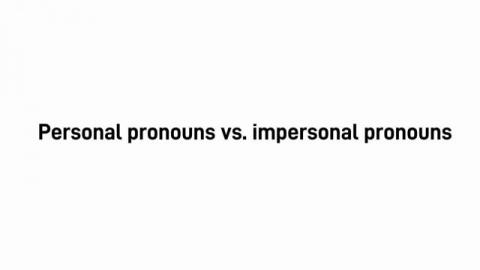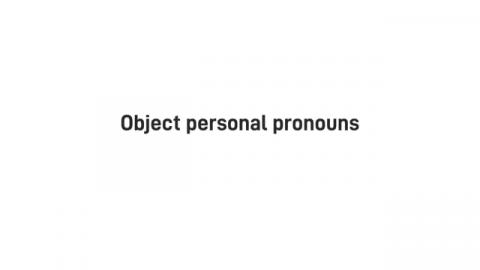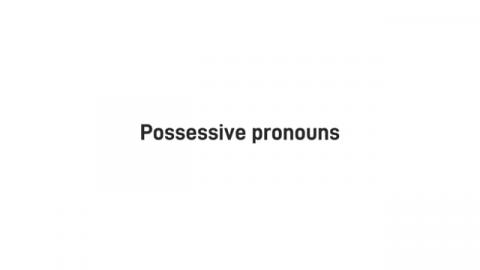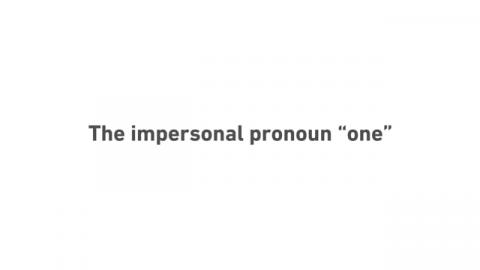Personal pronouns vs. impersonal pronouns
Personal pronouns vs. impersonal pronouns
A pronoun is a word that is used in the place of a noun. If we want to describe a person, writing or saying that person's name in every sentence will look inappropriate and boring. There comes the role of Pronoun. For example, John is my classmate, and John is intelligent. So, instead of saying John is intelligent, we should use He is intelligent. The Pronoun is of different types, but two of its forms are Personal and Impersonal Pronoun.
- أن يحدد
أهداف التعلم
المجال
التعليم
التخصص الدقيق
اللغة الإنجليزية تربوي
المستوى المعرفي
مبتدئ
تاريخ النشر
2022/06/06
جهة النشر
الرخصة

1

Personal pronouns vs. impersonal pronouns
أساس
There are different types of pronouns in English. They are used to avoid repetition of proper and general nouns. Pronouns can be personal or impersona
100%
 253
2532

Subject personal pronouns
أساس
Personal pronouns refer to a particular person, group, or thing and are important to avoid repetition in sentences. In grammar, there are three cases
100%
 163
1633

Object personal pronouns
أساس
Personal pronouns are used to replace the mention of a specific person, group, or thing and there are three cases for personal pronouns in a sentence:
100%
 169
1694

Possessive pronouns
أساس
Personal pronouns are very frequently used in English and they have different forms based on case, grammatical person, gender, and number. We have ide
100%
 172
1725

"The impersonal pronoun “one
أساس
The pronouns “one” and “you” are used to express something referring to everyone in general. In colloquial speech, the pronoun “you” is mostly used, w
100%
 165
165 179
179